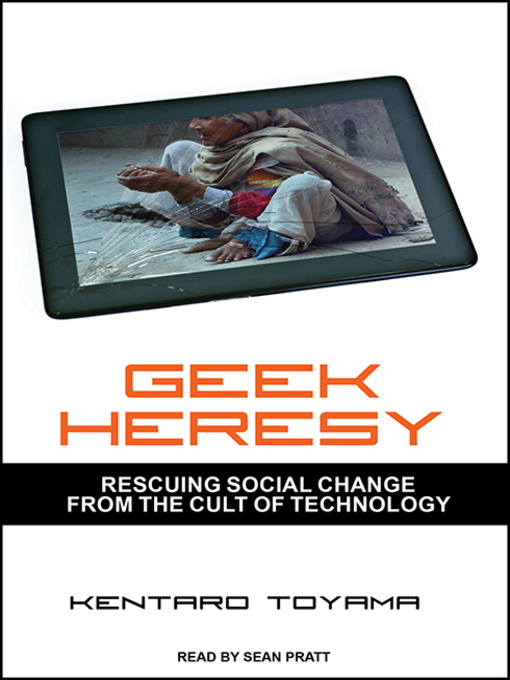-
Description
-
Creators
-
Details

- Kentaro Toyama - Author
- Sean Pratt - Narrator
OverDrive Listen audiobook
- ISBN: 9781494594589
- File size: 262774 KB
- Release date: June 23, 2015
- Duration: 09:07:26
MP3 audiobook
- ISBN: 9781494594589
- File size: 262812 KB
- Release date: June 23, 2015
- Duration: 09:07:23
- Number of parts: 9
